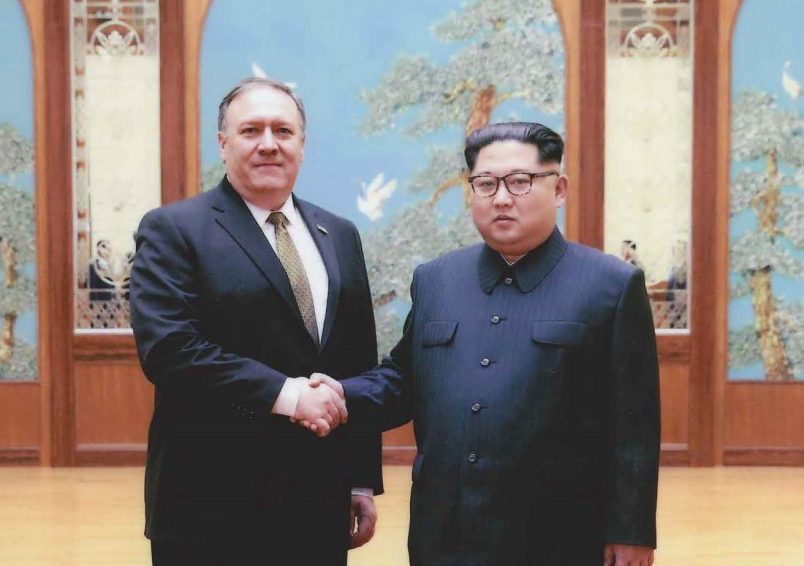From the outset, there was little reason to think that North Korea would agree to surrender its nuclear weapons and the infrastructure and labs required to build them. If we set aside the never-very-plausible idea that the Kims are madmen intent on prepping some secular apocalyptic nuclear confrontation with the U.S., a more prosaic, rational strategy becomes clear: build a credible nuclear deterrent, thus making military-backed regime change unthinkable. Then reach an accommodation with the U.S. from a position of strength and fundamental equality. Such an agreement might involve restrictions on nuclear weapons development, limits on numbers of warheads. But fundamentally it would mean accepting North Korea as a nuclear power.
Now the Trump administration appears to be trying to define “denuclearization” in such a way as to bring it into line with that kind of agreement. Most notably he seems to be focused now on eliminating the nuclear threat to the United States rather than North Korea’s nuclear weapons in general. That seems like it can be addressed by restrictions on missile capacity and/or some treaty which eliminates by some definition how much we consider North Korea a “threat”. Indeed, at one point, Pompeo has suggested that the U.S. is more categorical about North Korea getting rid of chemical and biological weapons than nuclear weapons – another hint that ‘denuclearization’ does not imply denuclearization.
Put it all together and you see a ‘deal’ in which North Korea gives up missiles that can reach the U.S., gets rid of chemical and biological weapons, and perhaps limits some ability to manufacture new nuclear weapons. In each case, North Korea gets an end of sanctions, partial withdrawal of U.S troops from South Korea and an undetermined amount of economic aid. (Note that this amounts to pretty close to the deal Republicans and finally President Bush trashed 20 years ago, only with the addition that North Korea has nuclear weapons and U.S. troops leave the region.)
What is notable is that such a deal means at least partially decoupling the U.S. from its regional allies in South Korea and Japan. One fact that aligns U.S. interests with South Korea’s is that we station over 20,000 U.S. military personnel and a substantial number of their dependents in the part of the country that would be the scene of intense fighting in a conflict with North Korea. Reduce the U.S. deployment and that alignment of interests or vulnerability diminishes. Also, note that the focus on ICBMs would mean that the U.S. safeguards its own population at the cost of accepting a North Korea nuclear capacity which covers all of South Korea and Japan.
None of this amounts to denuclearization. And much it is a ‘deal’ the U.S. likely could have gotten many times over recent years or decades.
Of course, maybe Trump will surprise us and has something dramatically different in the works. I doubt it.
I would also say the following. Believing we can ‘denuclearize’ North Korea is probably not realistic in any case. That doesn’t mean we shouldn’t try or that we should open up the national checkbook as President Trump appears ready to do. But our options are not good – fundamentally because North Korea is already a nuclear power, even though we’ve refused to give that fact our blessing. But just because President Trump appears ready to accede to what the North Koreans have always wanted doesn’t mean we should harbor unrealistic ideas about what is possible.






